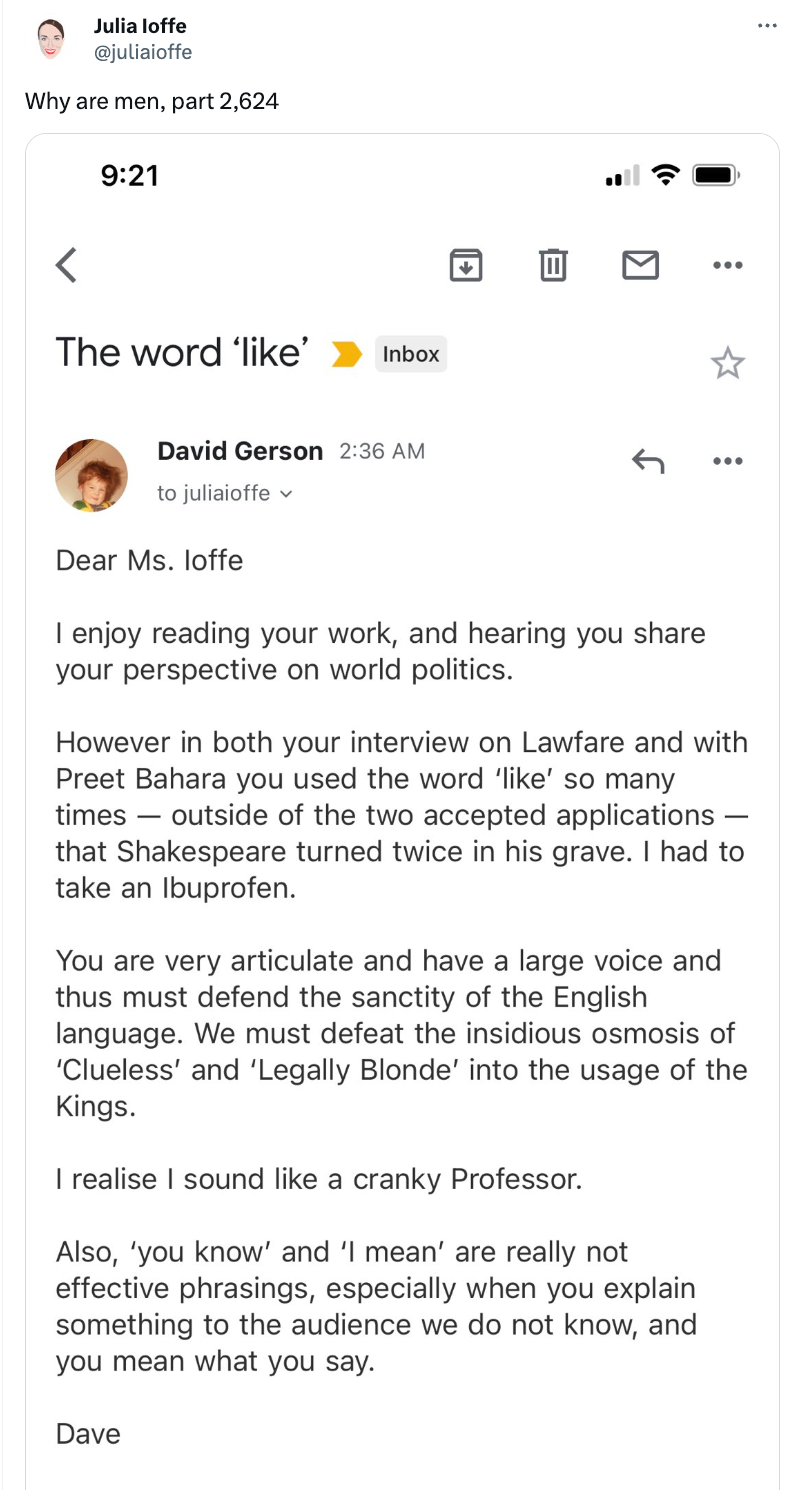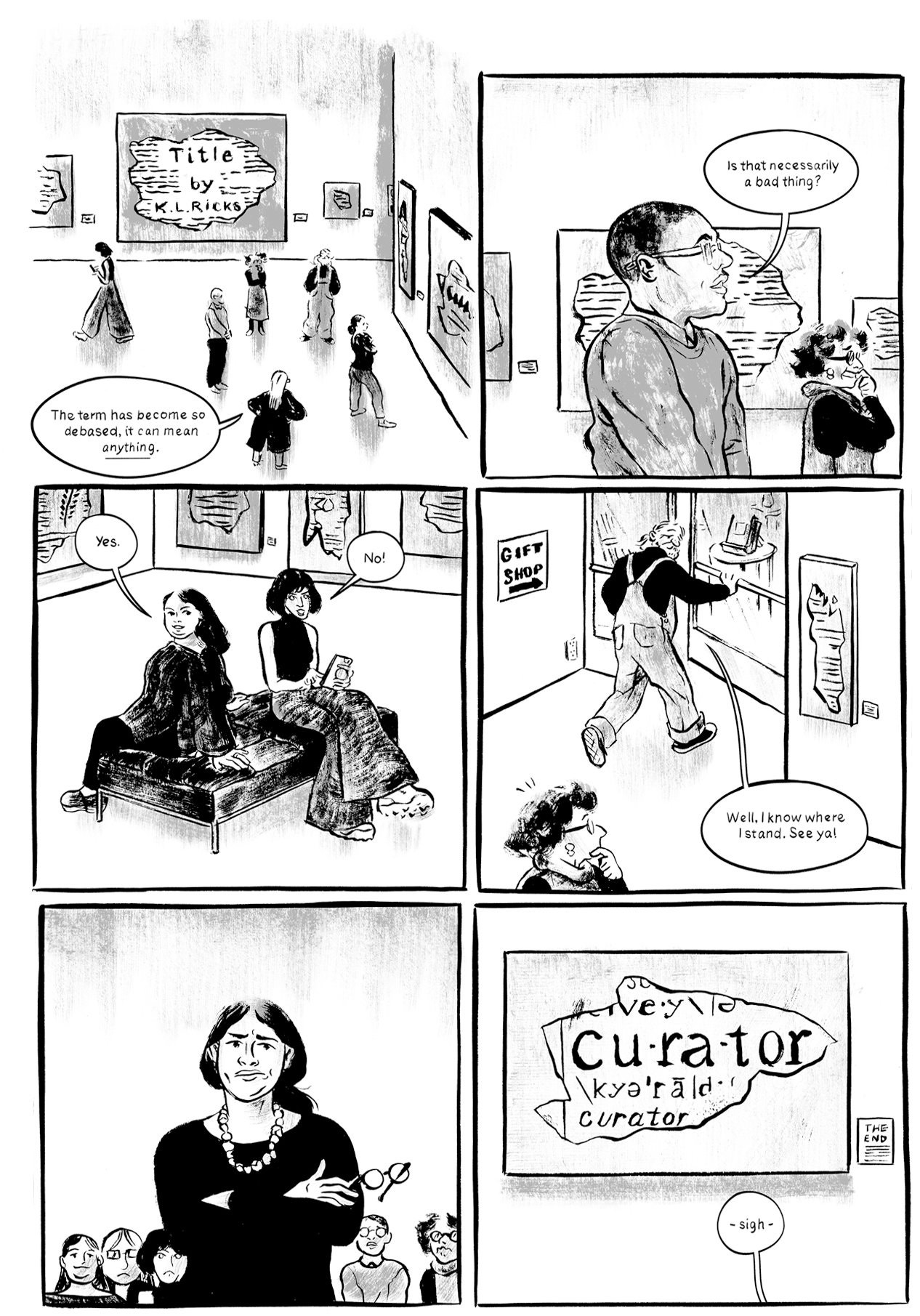Self-owning peeve of the week: Compersion
Email from Florent Moncomble [links added]:
A few months ago, the distinguished member of the Académie française Alain Finkielkraut was featured in a video where he deplored the loss of “a word which used to exist in the [French] language and disappeared from it”, ie. “compersion”. Apparently, little does he know that “compersion” was actually coined in the 1970s by the Kerista Community of San Francisco, in the context of polyamory, to describe the joy felt in knowing that your better half finds pleasure and happiness with other sexual partners! So that, far from being the old French word that he thinks it is, it is actually an English borrowing from the late 20th century… in other terms, the very nemesis of the Académie — not to mention the moral overtones of the term, quite the antithesis of the conservatism of that institution…
Laelia Veron, a colleague from the Université d’Orléans, Christophe Benzitoun from the Université de Lorraine and I worked together on debunking Finkielkraut’s claim for an academically informed yet humorous biweekly spot that Laelia has on French public radio France Inter.
Read the rest of this entry »



